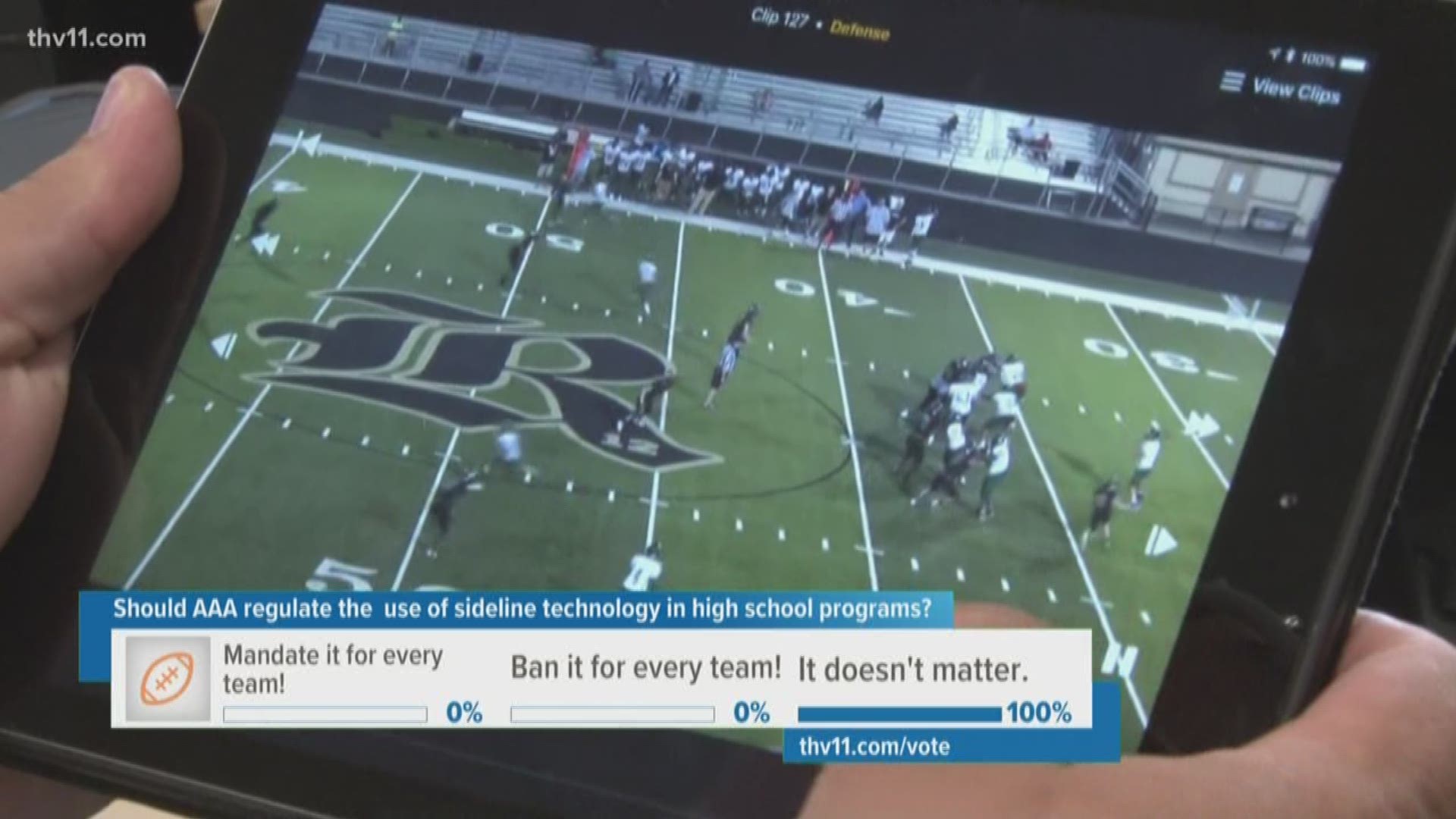LITTLE ROCK, Ark. (KTHV) - In football, the smallest edge can make the difference between winning and losing. For many teams, that edge is the size of a tablet.
Many high school football teams in Arkansas have begun using sideline replay technology to conduct film analysis during a game.
“It’s unbelievable,” said Jeff Risner, offensive coordinator for Joe T. Robinson High School. “I mean, we always talk about, ‘the eye in the sky doesn’t lie.’”
In football, the “eye in the sky” is the pair of cameras that record every game for nearly every team: one stationed in the press box, and another behind the end zone. They provide the angles preferred by coaches, including the “all-22” footage that shows every player on the field at the same time.
Tuesday evening, a group of students from Des Arc sat in the bleachers of War Memorial Stadium and filmed the Eagles’ victory against England. That footage will be dissected by the players and coaching staff in meetings leading up to their next game.
Risner remembers those days.
“That’s when we did a lot of our corrections and stuff,” he explained. “Now, then, we can actually do a lot of our corrections on the actual sideline when somebody messes up.”
Robinson is one of many schools that has a sideline instant replay system. It features an app that synchronizes the video feeds from the end zone and press box and wirelessly, instantly, sends clips of every play to iPads on the sideline. The clips are all labeled O, D, or K, to indicate offense, defense, or kicking, making it easy for the user to find and view specific plays.
“Right after that series is over with,” Risner stated, “we’re able to look at those things and let those guys know, ‘hey, you didn’t take the right drop here, you didn’t run your corner route correctly here.’”
Some teams, such as Nashville and West Memphis, hook their iPads up to TV screens, allowing many people to watch the video together. Risner said the Senators have several iPads, allowing each position coach to meet with his players and discuss the play in a way to that is relevant to them. Risner claimed adding the instant replay system made a huge difference, not just to correct technique, but to develop strategy.
“We’re able to look and see exactly where a hole was, or what slants a defensive line did,” he said, “and being able to see where the holes are supposed to be and try to kind of figure out how we can manipulate what they’re doing. So, it’s a big advantage.”
Robinson’s system, called Hudl Sideline, costs around $1,000 a year, but the price can vary depending on the number of angles and the level of service a team wants. Other providers charge $2,000 or more for a similar annual subscription. These services provide some wireless networking hardware, but the team must use its own cameras, iPads or iPhones to film and view the video. The Senators saved money because some of that equipment was purchased initially by the school for a technology class.
2018 will be the second season that Robinson has used a sideline replay system. Jared Dutton, the head coach of Watson Chapel High School, said this is the third year the Wildcats will use the SkyCoach system (http://www.myskycoach.com), which he acquired after hearing about it in 2015.
Risner said sideline replay systems, which are standard for college and NFL teams, are becoming the norm in the high school ranks. “I would say it’s probably more up, you’re looking at probably 60 to 70 percent of teams are starting to do that,” he said.
The Arkansas Activities Association has no rule governing the use of such systems, though it allows the general use of electronic devices on the sideline.
Alabama this year became the first state to require that every high school football team have a sideline replay system, though it did so to provide its officials with the ability to review and overturn incorrect calls.
Despite the cost of the equipment and the subscription, Risner thinks Arkansas may soon follow suit.
“Some of your smaller schools may not have the capability of this, maybe because of finances, or they’re using those things somewhere else,” he said. “But I think you’re getting to where...we’re not necessarily that far behind Alabama, so I think that, eventually, it’s going to be kind of a requirement for each school to have some sort of system that they can use, either for officials, for replays, or on the sideline for their actual football team.”

